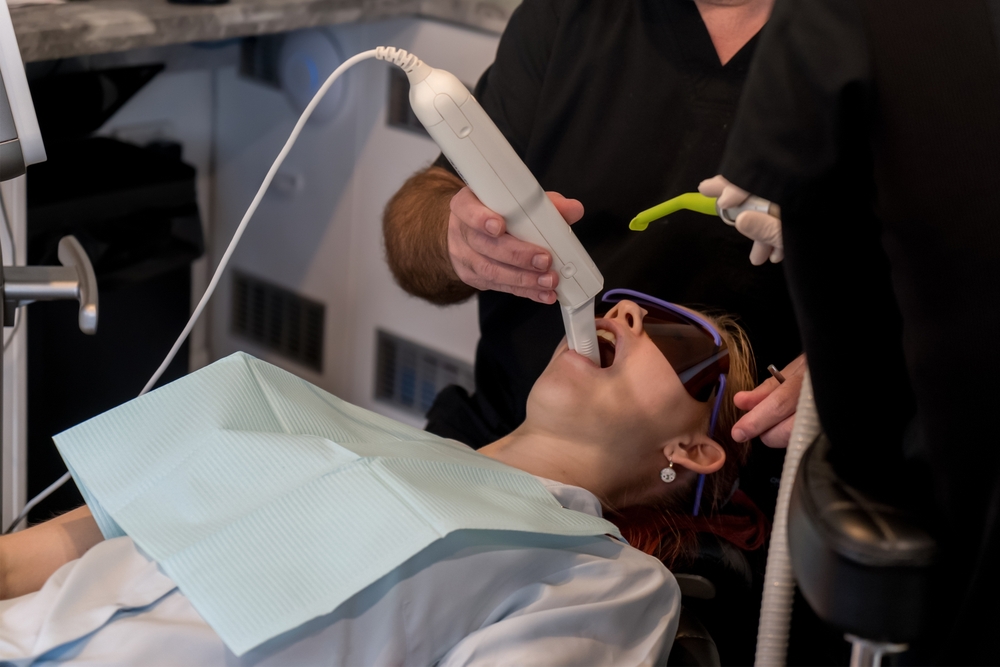When faced with the need for root canal therapy, one of the most pressing concerns patients have involves understanding the financial investment required for this essential dental procedure. Root canal treatment costs can vary significantly based on numerous clinical and logistical factors, making it crucial for patients in Pearland, Pasadena, Fresno, and Alvin to have clear, transparent information about pricing expectations and available financial options.
At Pearland Dental Group, Dr. Rushi Dave and Dr. Mili Shah believe in complete financial transparency, ensuring that every patient understands the investment required for their endodontic treatment before beginning any procedures.
Our experienced dental team provides detailed cost estimates and works closely with patients to explore all available insurance benefits and financing optionsto make essential root canal treatment accessible and affordable. Contact Pearland Dental Group, your local Pearland, TX, dental practiceat (281) 993-9900today to discuss your specific treatment needs and receive a personalized cost analysis.
Understanding the factors that influence root canal therapy pricing helps patients make informed decisions about their dental care and budget appropriately for treatment.
The national average for root canal therapy typically ranges from $800 to $2,100 per toothwithout insurance coverage, though this range reflects significant variations based on treatment complexity, geographic location, and individual case requirements. The final investment in endodontic therapy depends on several interconnected variables that our dental team carefully evaluates during your initial consultation.
The position of the affected toothwithin your mouth significantly impacts both the technical difficulty and time requirements for successful treatment. Posterior teeth, including molars and premolars, typically require a higher investment due to their complex root anatomy, with some molars containing three or four separate root canals that must each be individually cleaned, shaped, and sealed. These back teeth also present accessibility challenges that require specialized instruments and extended treatment time.
Front teeth, including incisors and canines, generally involve lower costs due to their simpler root structure and easier accessibility. However, aesthetic considerations for anterior teeth may require additional procedures to ensure optimal cosmetic results, potentially affecting the overall investment.
The extent of bacterial infectionand associated tissue damage directly correlates with treatment complexity and associated costs. Simple cases involving localized pulp inflammation may require standard root canal procedures, while advanced dental infectionsthat have spread to surrounding bone tissue may necessitate additional treatments such as apical surgery or regenerative endodontic procedures.
Teeth with previous endodontic treatment that require retreatment typically involve higher costs due to the complexity of removing existing filling materials, navigating previously shaped canals, and addressing complications that may have developed since the initial treatment. Retreatment cases often cost 20-50 percent more than initial treatment due to these additional complexities.
Modern endodontic treatment often requires sophisticated diagnostic imagingbeyond standard X-rays. Three-dimensional cone beam computed tomography(CBCT) scans may be necessary for complex cases, providing detailed visualization of root anatomy, infection extent, and surrounding structures. While these advanced imaging techniques add to the initial investment, they significantly improve treatment success rates and reduce the likelihood of complications.
Contemporary root canal therapy utilizes advanced microscopic visualizationand specialized instrumentsthat enhance precision and treatment outcomes. While these technological advances may influence treatment costs, they provide substantial benefits, including improved success rates, reduced treatment time, and enhanced patient comfort.
Root canal costs vary significantly based on regional economic factors, local competition, and individual practice overhead expenses. Practices in metropolitan areas or those offering specialized services may have different pricing structures compared to general dental practices.
Most root canal-treated teeth require protective dental crownsor other restorative workto ensure long-term success and prevent fracture. While restoration costs are separate from the endodontic procedure itself, they represent an important component of the total investment required to return your tooth to full function and protection.
Dr. Rushi Dave and Dr. Mili Shah bring over two decades of combined endodontic experience to Pearland Dental Group, utilizing advanced microscopic techniques and streamlined treatment protocols that maximize efficiency while reducing costs.
Our experienced team has successfully completed thousands of root canal procedures, ensuring optimal outcomes with minimal chair time and associated expenses for our patients.
Our dedicated financial coordinators serve as your personal advocates, maintaining relationships with all major insurance providers to maximize your reimbursement while partnering with multiple financing companies like CareCredit to provide flexible payment solutions.
Conveniently located in the heart of Pearland, our practice sits just minutes from popular attractions including Sri Meenakshi Devasthanam temple, Houston Zoo, and Houston Botanic Garden, allowing you to combine your dental care with enjoyable visits to these beloved destinations throughout the greater Houston area.
While the initial cost of root canal treatment may seem substantial, the long-term value and benefitsof preserving your natural tooth structure provide an exceptional return on investment when compared to alternative treatment options.
Your natural teeth possess unique characteristics that cannot be replicated by artificial replacements. Root canal therapy allows you to maintain your original tooth structure, preserving natural chewing efficiency, sensation, and proprioception that artificial teeth cannot match. This preservation of natural function contributes to better overall oral health and quality of life for decades to come.
When comparing the lifetime costs of root canal therapy versus tooth extractionfollowed by replacement options, endodontic treatment consistently proves more economical. Dental implants, while excellent tooth replacement options, typically cost $3,000 to $6,000 per tooth, including the implant, abutment, and crown. Additionally, implants may require periodic maintenance, component replacement, or surgical interventions over time.
Partial denturesor dental bridgesalso present ongoing costs and complications, including potential damage to adjacent healthy teeth, periodic adjustments, and eventual replacement needs. Root canal therapy, combined with a protective crown, can provide 20-30 years or more of reliable service with proper care and maintenance.
The investment in root canal therapy provides immediate relief from the excruciating painassociated with dental infections, allowing you to return to normal eating, sleeping, and daily activities. This rapid improvement in quality of life has immeasurable value that extends far beyond monetary considerations.
Untreated dental infections can lead to serious systemic health problems, including endocarditis, sepsis, and other life-threatening conditions that require expensive medical treatment. Investing in timely root canal therapy prevents these potentially catastrophic health complicationsand their associated medical expenses.
Preserving natural teeth through root canal therapy maintains proper facial supportand prevents the sunken appearance that can occur following tooth loss. This preservation of facial aesthetics eliminates the need for additional cosmetic procedures that might be required to restore facial harmony after tooth extraction.
Understanding your dental insurance benefits for root canal therapy requires careful review of your policy details and coordination with your insurance provider to maximize coverage and minimize out-of-pocket expenses.
Most dental insurance plans classify root canal therapy as a major restorative procedure, typically covering 50-80 percent of the treatment cost after deductible requirements are met. However, coverage percentages vary significantly between insurance providers and specific policy terms, making it essential to verify your benefits before beginning treatment.
Dental insurance policies typically include annual maximum benefit limits, often ranging from $1,000 to $2,500 per year. If you require multiple dental procedures or have already utilized a portion of your annual benefits, the remaining coverage for root canal treatment may be limited. Our administrative team can help you strategically plan treatment timing to optimize insurance utilization.
Some insurance plans require pre-authorization or predetermination of benefits before beginning root canal treatment. This process involves submitting diagnostic information and treatment plans to your insurance company for review and approval. While this process may add time to treatment planning, it provides clarity about covered benefits and expected out-of-pocket costs.
Certain dental insurance policies include waiting periods for major procedures, typically ranging from six months to two years after policy initiation. If you have recently enrolled in dental insurance or changed plans, verify whether waiting periods affect your coverage for endodontic treatment.
Choosing an in-network dental provider often provides enhanced benefits, including higher coverage percentages, lower deductibles, and reduced copayments. Pearland Dental Group participates with most major dental insurance plans, maximizing your available benefits while providing expert endodontic care.
Understanding that dental emergenciesand treatment needs don’t always align with financial planning, Pearland Dental Group offers multiple financing options to make essential root canal therapy accessible for all patients.
Specialized healthcare financing companies, such as CareCreditand Cherry, provide dedicated credit lines for medical and dental expenses, offering promotional periods with deferred interest or low-interest payment plans. These programs often provide immediate approval decisions and can be used for both the endodontic treatment and any necessary restorative work.
Application processes are typically streamlined and can often be completed online or in our office, with approval decisions available within minutes. Payment terms range from short-term promotional periods to extended repayment schedules based on the treatment amount and your financial preferences.
Pearland Dental Group offers flexible in-house financing arrangements that enable patients to spread treatment costs over several months, eliminating the complexity of third-party financing. These arrangements are customized based on individual financial circumstances and treatment requirements, providing personalized solutions that fit your budget.
If you participate in an HSA or FSA through your employer, these pre-tax dollars can be used for qualifying dental expenses, including root canal therapy and associated restorative work. Using HSA or FSA funds effectively reduces your treatment cost by your marginal tax rate, providing significant savings.
Our administrative team can provide the necessary documentation and receipts to facilitate HSA or FSA reimbursement, ensuring you receive maximum benefit from these valuable healthcare accounts.
For patients who prefer to manage treatment costs through extended payment schedules, we offer arrangements that spread costs over 12-24 months with competitive interest rates. These options provide predictable monthly payments that can be easily incorporated into your household budget.
To minimize your upfront investment, Pearland Dental Group accepts assignment of insurance benefits and bills your insurance provider directly. This arrangement means you only pay your estimated out-of-pocket portion at the time of service, with insurance payments applied directly to your account balance.
Several strategies can help reduce your overall investment in root canal therapy while ensuring you receive optimal treatment outcomes.
Addressing dental infections promptly, before they progress to advanced stages, often results in simpler treatment requirements and lower costs. Regular dental examinations allow for early detection of problems that might require endodontic treatment, enabling intervention before complications develop.
Maintaining excellent oral hygieneand attending regular preventive appointmentssignificantly reduces the likelihood of developing conditions that require root canal treatment. The investment in preventive care provides exceptional value compared to the cost of treating advanced dental problems.
While cost should not be the primary factor in choosing an endodontic provider, obtaining consultations from multiple qualified practitionerscan provide valuable perspective on treatment approaches and associated costs. However, remember that the lowest price may not always represent the best value when considering success rates, technology utilization, and long-term outcomes.
If your dental insurance operates on a calendar year basis and you have already utilized a significant portion of your annual benefits, strategically timing treatment to maximize insurancecoverage across two benefit years may reduce your out-of-pocket investment.
Most dental insurance plans provide the same coverage for emergency root canal treatment as scheduled procedures, typically covering 50-80 percent of costs after deductible requirements. However, emergency treatment may bypass usual pre-authorization requirements, though some plans may require retroactive review. We recommend contacting your insurance provider immediately to understand your specific emergency benefits and any associated limitations.
Patients without dental insurance have access to the same financing options as insured patients, including healthcare credit cards, in-house payment plans, and extended financing arrangements. Additionally, some patients find that paying cash or using healthcare savings accounts provides cost advantages compared to insurance copayments and deductibles. Our financial coordinators can analyze various payment options to identify the most economical approach for your specific situation.
Root canal retreatment typically costs 20-50 percent more than initial treatment due to the additional complexity involved in removing existing filling materials, navigating previously shaped canals, and addressing complications that may have developed. However, retreatment often costs significantly less than tooth extraction followed by implant placement, making it an economically advantageous option when feasible.
While root canal therapy combined with crown restoration typically costs $1,500-3,000 total, tooth extraction followed by implant placement usually ranges from $3,000-6,000 or more. Additionally, root canal treatment preserves natural tooth structure and typically requires less time for completion compared to the months-long implant process. When factoring in the longevity and functionality of preserved natural teeth, root canal therapy consistently provides superior long-term value.
Yes, many patients successfully combine financing approaches, such as using insurance benefits for a portion of treatment costs while financing the remaining balance through healthcare credit cards or payment plans. Our financial coordinators can help structure payment arrangements that maximize your available resources while minimizing overall costs and monthly payment obligations.
While complications requiring additional treatment are relatively uncommon, we provide detailed informed consent that outlines potential scenarios that might affect treatment costs. If unforeseen complications arise, we discuss all options and associated costs before proceeding with additional treatment. Many complications can be addressed within the scope of the original treatment plan, and we strive to provide accurate initial estimates that account for likely treatment requirements.
Don’t let concerns about treatment costs prevent you from addressing dental infections that threaten your oral health and overall well-being. The experienced team at Pearland Dental Group, led by Dr. Rushi Dave and Dr. Mili Shah, provides comprehensive root canal therapy with transparent pricing and flexible financing options designed to make essential treatment accessible for patients throughout Pearland, Pasadena, Fresno, and Alvin.
Contact Pearland Dental Group today at (281) 993-9900to schedule your comprehensive consultation and receive a detailed cost analysis for your root canal treatment in Pearland, TX. Our compassionate team is committed to providing exceptional endodontic care with the financial transparency and flexibility you deserve.





Our clinic offers all kinds of services and constantly study new
technology to add new custom services to the list
Phone: (281)993-9900
Address: 1812 E. Broadway St. Pearland, TX 77581
Copyright © 2021 Pearland Dental Group | Managed by Now Media Group